Welcome to the 2019-2020 school year!
Tonight, we begin a journey together. On our journey, we will get to know each other’s stories and share our lives for a time. Together, we will watch your children grow, develop and unfold. At Greenhouse, we know that strong, supportive relationships provide the foundation for this journey. Relationships, including the relationship between children, parents and teachers provide the conditions in which all of our school experiences and learning take place. Because we know that human beings are wired to seek connection and develop in a social context, we put relationships at the forefront of all of our work.
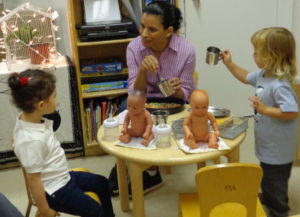
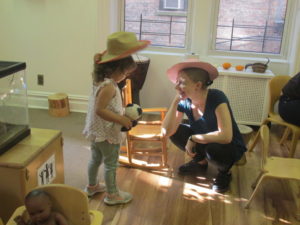
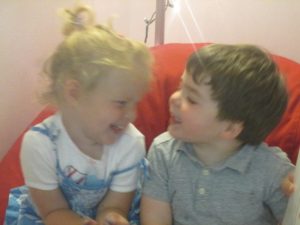
Recent professional visitors affirmed this to be true! After an intense, three day visit and observation of our school by Middle States Accreditation team, they wrote in their final report:
“In every classroom, teachers modeled grace and courtesy in their interactions with children; this school sets the standard for building social-emotional competence through positive relationships.”
(I’m not sure if there is anything else that they could have said that would have made me feel more proud of our school. Because relationships are that important.)
Your children will learn countless things in their time at Greenhouse. They will learn to write. They will learn to pattern. They will learn to count. They will learn all those isolated skills along the way. I believe one of the most important things they will learn at Greenhouse is how to be in social relationships with other people, outside of their family. Learning how to be in a relationship, learning how to work and live in a group of your peers. These are the skills that are going to save the world! And learning these skills? That begins right now!
Our children will learn how to identify and express their emotions. They will learn that there are adults (other than their parents) that can love and care for them. They will learn how to enter into play and share a plan with a peer. They will learn how to cultivate and keep a friend across time. They will learn that some people are the same as them in some ways and some people are different than them in some ways—and both are interesting and add value to their learning. They will learn how to establish boundaries for themselves and how to respect the boundaries of others. While far from mastered in the nursery school years, these important life skills begin here at nursery school.
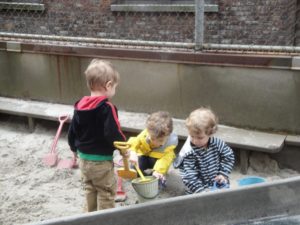
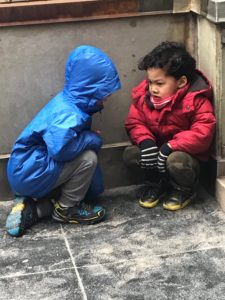
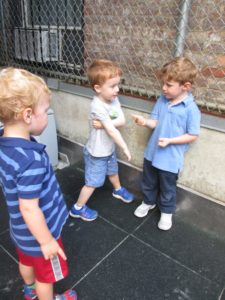
The teacher-child relationship anchors it all. At Greenhouse, we know (and research supports) that young children learn best when they are being metaphorically held in a warm, trusting relationship with their teacher. We know that the give-and-take, the relational mode of each interaction, teaches children that school is a safe place. We respond quickly, appropriately and sensitively to the individual needs of each child. Because children are unique individuals and require different, varied things. Responsive teaching is a complicated dance. And that dance begins with the phasing-in period! I know that the next few weeks of shorten days and small groups might be a scheduling nightmare or logistical headache. But there is strong research that suggests young children need this time at the beginning of their relationships with teachers.
I like to call it the ‘falling in love’ stage. Falling in love takes time and experience. With each passing day and each interaction, your children will learn that these adults called teachers have fun things to do, a soft lap to sit on and warm smiles and hugs that match their gentle words and kind tone. Even for older children that have already experienced school and separation, phase-in helps them feel comfortable in their new space and new relationships. Phase-in is an important, intentional part of our relationship building.
From there, our teachers continue to work to get to know each child’s individual point of view and deepen their relationship with them. We engage in meaningful conversation about your child’s personal story. We find out which child loves unicorns and which child knows every fact about snakes. We make time to know the needs and interests of individual children because that is how we can best support their individual growth and learning. Close, warm, supportive relationships between your children and their teachers are core to school success.
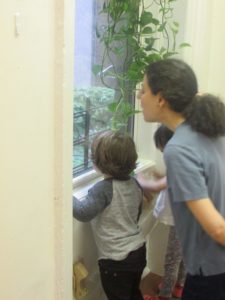
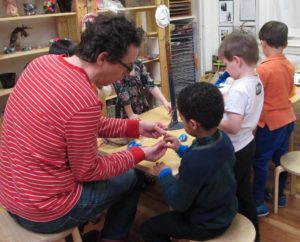
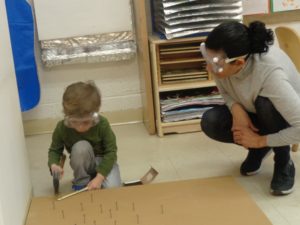
Equally important are the relationships between the children. For many children, nursery school is the first time they are in a consistent social group with their peers. Learning how to navigate the social world is challenging (even for adults!). It is especially challenging for young children, who are just at the very beginning of understanding that other people have a different point of view, varied skill levels and separate experiences. At Greenhouse, we take the work of building social relationships with peers very seriously. So much of our children’s world is experienced through their relationships with their peers. Friends provide the impetus for fun, learning and laughter. Friends can also be the catalysts for disappointment, sadness and tears. Helping children navigate the complexity of these truths and realities becomes our work.
Much of this work begins with building a “feelings vocabulary.” First, we start with the ability to recognize and label one’s own emotions. “Are you frustrated that your friend won’t listen to your idea?” or “Are you sad that your friend is playing with someone else right now.” Both are examples of statements that help children connect their emotions with their thoughts. The simple act of labeling an emotion with words helps to shift the emotion to the language center in the brain. This helps a child process the feeling in a manner that is more cognitive and less reactive; it’s the beginnings of self-regulation and it is fundamental to social competency. Our ultimate goal is for our children to build their ability to express their needs, while being intrinsically motivated to act empathically and mindfully of others.
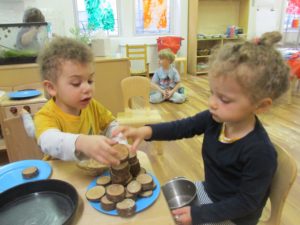
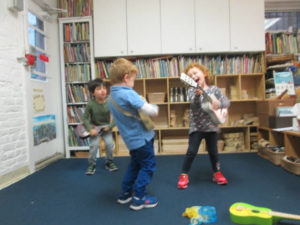

Our play-based, child-centered program provides our children with natural opportunities to interact with peers and practice the skills needed to live and learn in a group. Our environment, materials and curriculum approach all are designed to bring children together. As children engage together in cooperative activities—they take turns, take risks, and make decisions. Problems come up (as they do in any relationship) “I need some tree cookies!” And, together we practice conflict resolution: “Looks like we have a problem. You both need some cookies. How can we solve this, so that you both have enough cookies?” With each experience, children learn how to express what they need and how to hear the needs of others. They learn how to solve problems in a way that respects everyone’s point of view!
In addition to these prosocial skills, we help children see and value the differences between themselves and their peers. Children’s social competence and ability to build relationships with their peers truly grows when their differences are celebrated and not marginalized or treated as if those differences are invisible. Whether we are talking about differences of race, language, gender or family composition, our differences make our group more interesting and our differences add value to our learning. This is especially true when thinking about children with learning differences or special needs. With coordinated supports, including collaborative relationships between parents, teachers and specialists, children with developmental differences can make huge strides in our classrooms. All children benefit from being in a group that recognizes that we each have our own unique abilities and potential for growth. When we normalize ability differences for our kids, including delays in language skills, behavior challenges, or sensory processing issues, we create a world where all children are able to accept and understand the differences among themselves as inherent in life, instead of a world where those differences are used as a way to separate us.
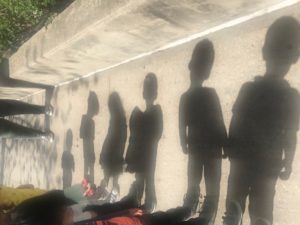
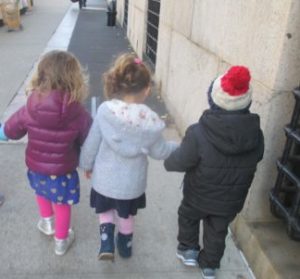
Framing differences as a normal part of classroom living creates the opportunity for all children to be a successful, respected member of the class. Additionally, children can see that all of their peers can achieve, learn and be a friend, regardless of developmental differences. Making a friend is hard work; keeping a friend is even harder work! Learning how to be in a relationship with people outside of one’s family is an ongoing process—that begins here, in nursery school and last throughout one’s lifetime.
In addition to building strong relationships with the children and helping children develop relationships with each other, we are also working to build a strong relationship with you. We want each of you to know that you are a welcomed, acknowledged and valued part of the Greenhouse community. Tonight is the beginning of our relationship with you and your relationship with each other! We want to know your dreams for your child. We want to support you in finding resolution to your fears for your child.
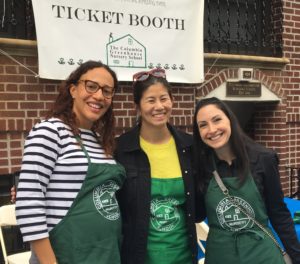
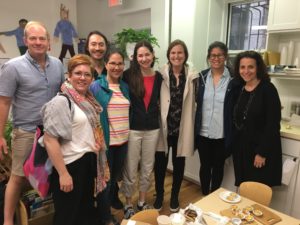
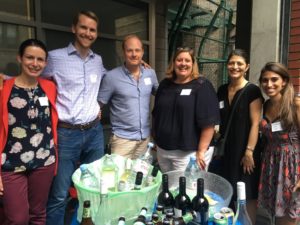
Whether it is in our parent discussion group, classroom meetings or parent-teacher conferences, we are always looking for ways to connect and support you in your role as parent. Our Parent Association works to connect the school-wide community by planning social events and family events outside of school time. Your Class Rep will plan class-wide social gatherings to help foster community in the class. These people sitting around you are some of the kindest, most generous people I have ever met! We all find ourselves in this role of parent—with little to no job training, handbook or even an orientation session! We are all learning this as we go! We all experience fears or loss of confidence or moments of uncertainty, at some point. It is my deepest hope that the faculty and staff at Greenhouse are able to build a relationship with you that is able to lift and support you in your role as parents.
Tonight, we begin that journey of relationship building. Together—teachers, children and parents—we begin the life-long journey of learning about one another, learning about ourselves and learning about who we are when we come together. Ultimately, it is this work of truly knowing one another through responsive, respectful relationships that moves us from being a mere collection of people sharing a simple experience into a space where we are a genuine community that cares deeply for each other.
I’m so excited to being this journey with you!
Renee